A JOURNEY IN FLAVOURS
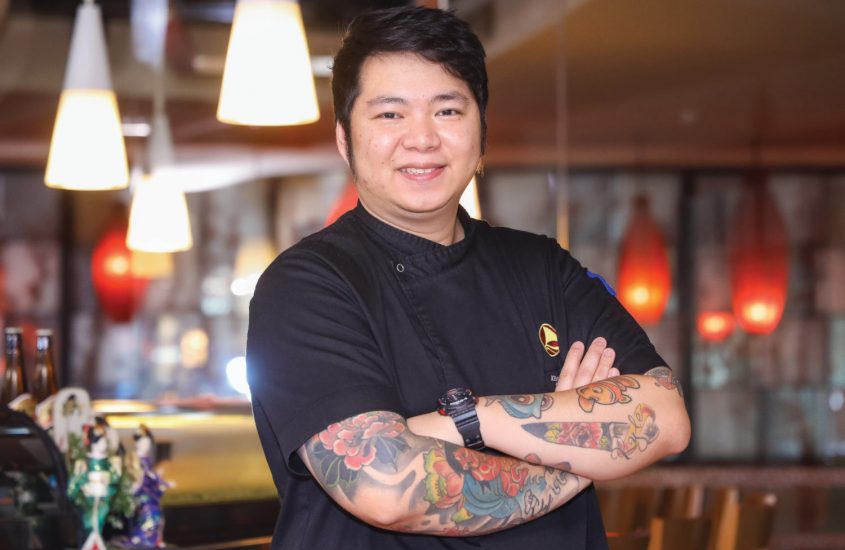
Kevin De Guzman, Head Chef at Sato Japanese Restaurant, The Gulf Hotel Bahrain, Convention & Spa, tells us about what excites his kitchen practice and his love of granny cooking.
When and why did you first become interested in Japanese cuisine?
It definitely wasn’t love at first sight. I grew up around food and bar. My parents and many other family members worked in the industry. Also, my grandma used to cook a lot. She wasn’t the warmest granny, and cooking was her way of showing love. But a real fascination started with the work itself. Getting paid to light stuff on fire and play with knives really worked for me in my 20s. When I got better at it, I found that the combination of adrenaline and repetitive movement was almost like a drug. Not uncommonly, I’d spend some portion of my day in a sort of trance state. Eventually your body just knows what to do. I just remember many times being very happy and amazed for several hours.
Scientific food got kind of trendy for a while and, for me, that triggered an interest in the how and why and all of the weird techniques. I read everything I could find about food. That’s when the sheer fun and the bro-iness of the kitchen started to turn more intellectual. Japanese Cuisine has had a huge impact on me. I became curious and really interested in the cuisine so I studied about it.
The way that Japanese food is prepared, with great care and beautiful simplicity, says a lot about Japanese culture and the way Japanese people treat all of their work. Many ingredients are selected based on their season so they are served at their best and recipes have been passed down from generation to generation so each aspiring chef benefits from years of wisdom. I became obsessed with the traditional Japanese cuisine, or ‘Washoku’. It revolves around the concept of seasonality.
Presentation is also key. Different dishes are served on or in complementary types of tableware, varying in shape, size, colour and pattern. Washoku is more than just a type of cuisine, it’s an art form.
Have you had any particularly important mentors along the way?
I first met Chef Naotaka Tokuhisa when I was a commissary chef as part of the opening team for an outlet in Bahrain in 2012. He was in charge of training the kitchen team. I was told that I would not last more than a month given his strict standards. However, I ended up working with him for more than four years.
One of Chef Naotaka’s phrases in the kitchen is “Do not succumb to the human nature of being lazy”. He is rigorous and has high expectations for the quality of food and service. One of my deepest memories is of him casting a strict eye on the food. One needs to consider the three tenets of cooking in Japanese cuisine— the balance of taste, technique and timing. He would not show us a dish’s recipe or tell us how it is cooked directly, but he expected us to experiment and perfect the recipes on our own. He always had an eye for the small details. It was only through trying that we could experience it for ourselves and perfect our dishes.
Following his style, I will get two of my staff to cook the same dish and let my staff try the two versions and share their thoughts on why each version turned out differently. Then, I will explain the differences between how these two dishes turned out.
Kazuo Takagi, a two-star Michelin Chef, was also a mentor in terms of shaping my perception of what food can achieve. He is someone who dares to break expectations of what food can be, by being inventive and taking risks. He taught me that, with rigour, there are no real boundaries to our expression as chefs. Our talent lies in our tradition, our taste buds, and our ability to translate these heartful lessons from our childhood and past into every dish we serve.
Takagi-san is one of the most important chefs in gastronomic history. For him to acknowledge and recognise that all clients are equally important is a learning I hold to my heart and the reason why I want Sato to be a place that welcomes everyone like family with open arms.
Is there one chef you would really love to share a kitchen with and, if yes, why?
Not a chef, but with my late grandma. Granny cooking is taken for granted, and it’s somehow not considered ‘proper cooking,’ though of course it is. There’s something about grandma energy that commands instant respect and keeps young cooks in line. With the señoras, everyone is on their best behaviour—the language, everything—just by having them in the room. Overall, my grandmother proved dedication, time and love are the three essential qualities that make anyone the best cook.
What is your signature dish and what makes it popular or special?
Nigiri Sushi. I insist on using only the freshest seafood imported or caught daily from our suppliers. The key to my signature dish is not the fish, but the rice. Fish on its own does not produce the best taste; only by combining it with rice can the full spectrum of flavours be achieved. The sushi rice is dressed in a secret blend of vinegars before and it is draped over with a slice of fish. I depend on my years of expertise to prepare the best rice and pair it with the most ideal fish – that’s what makes my sushi special. ✤

















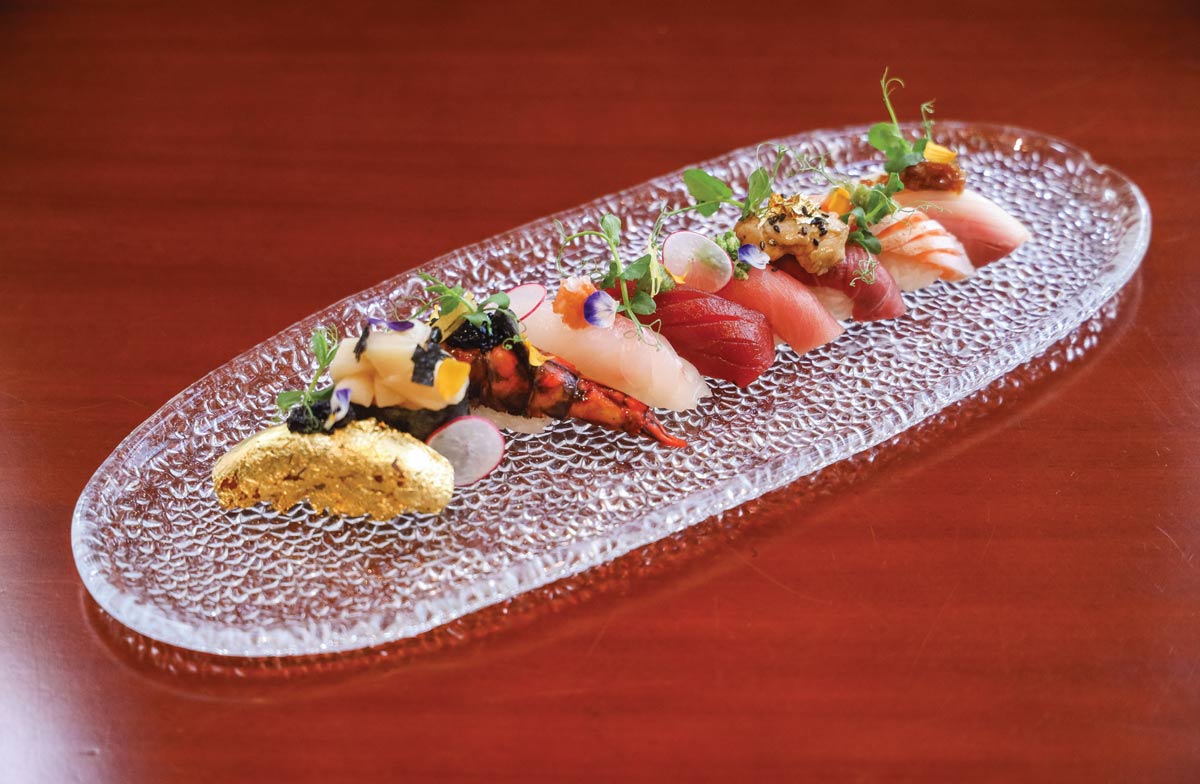





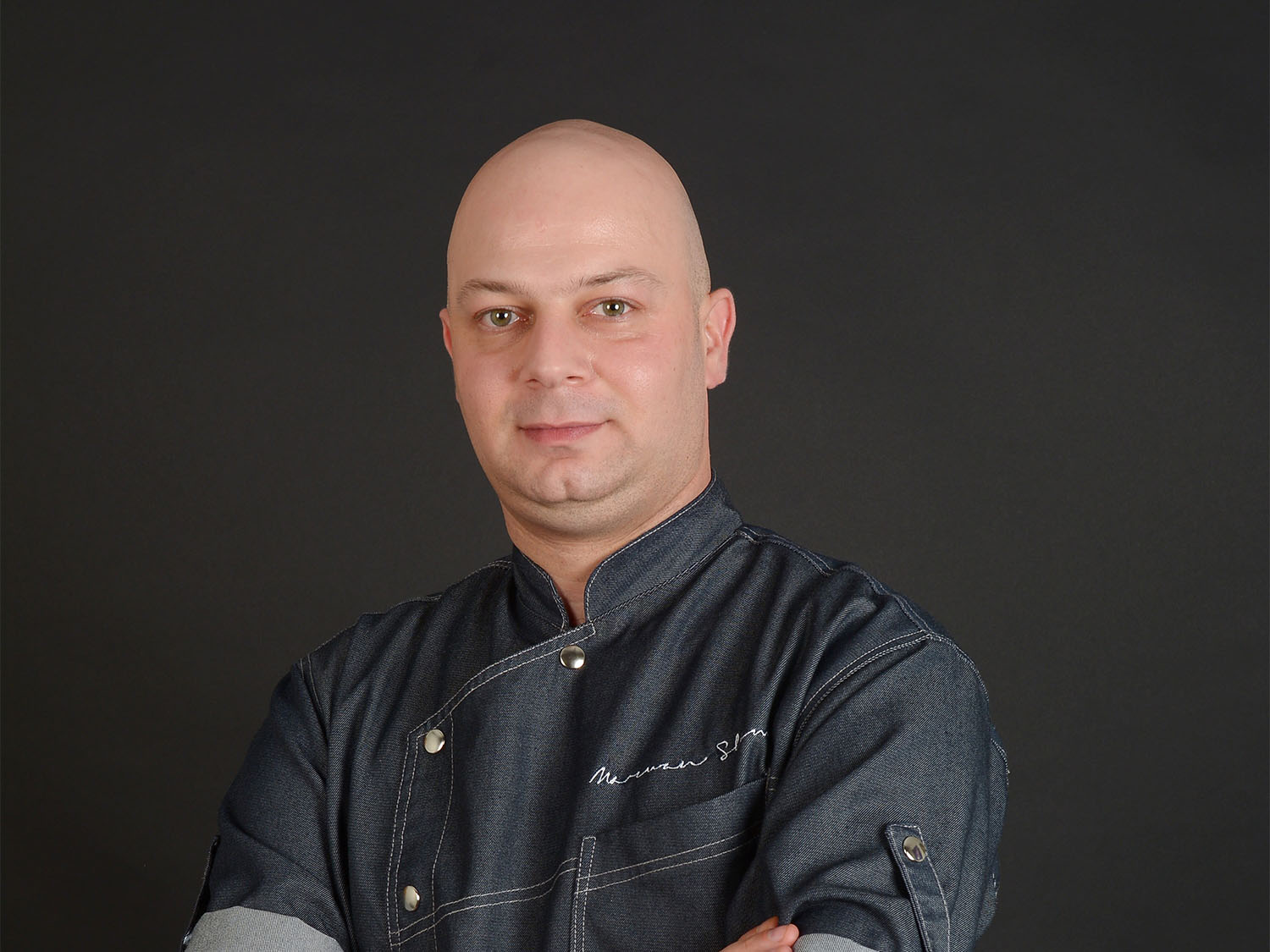
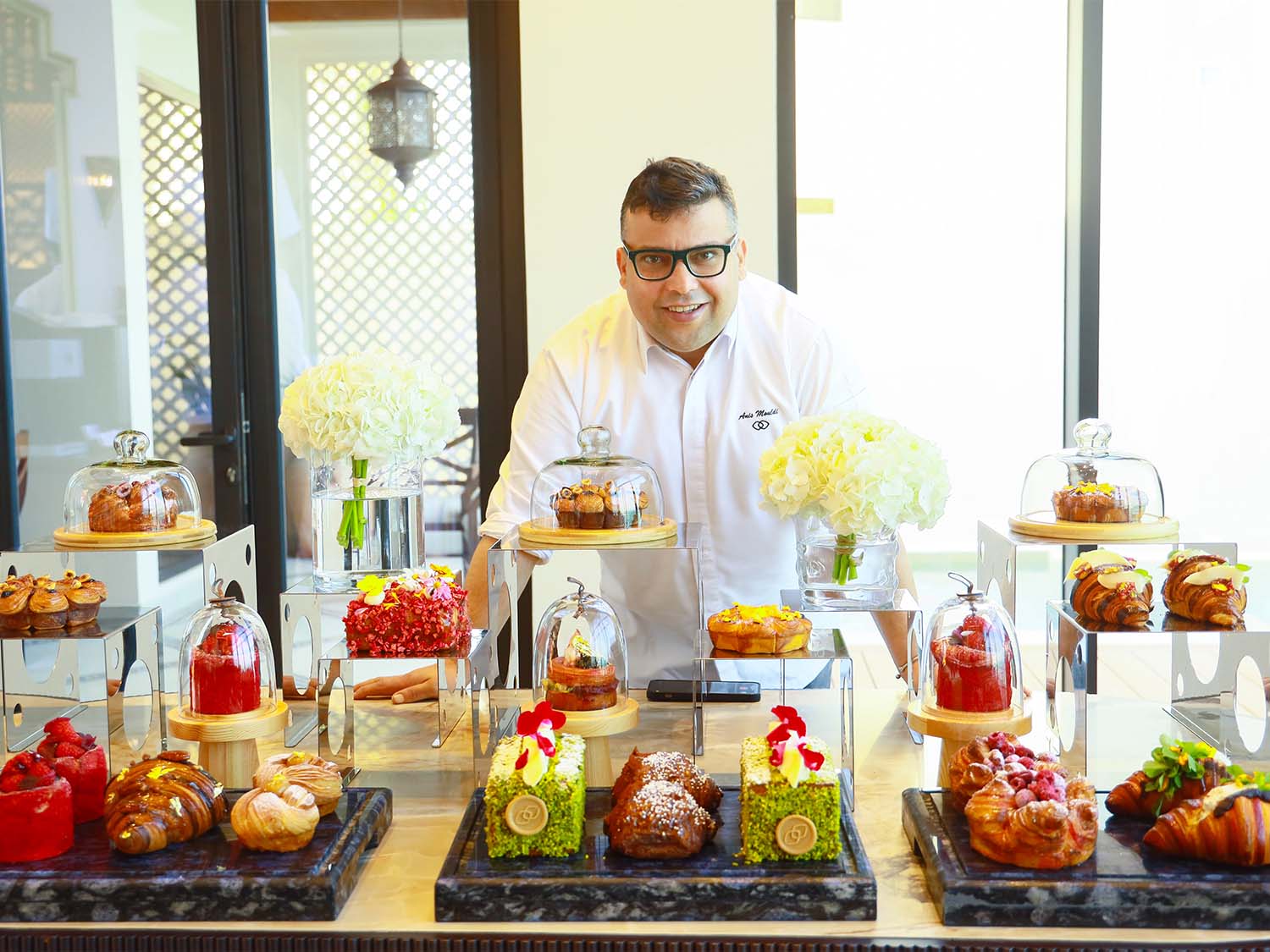
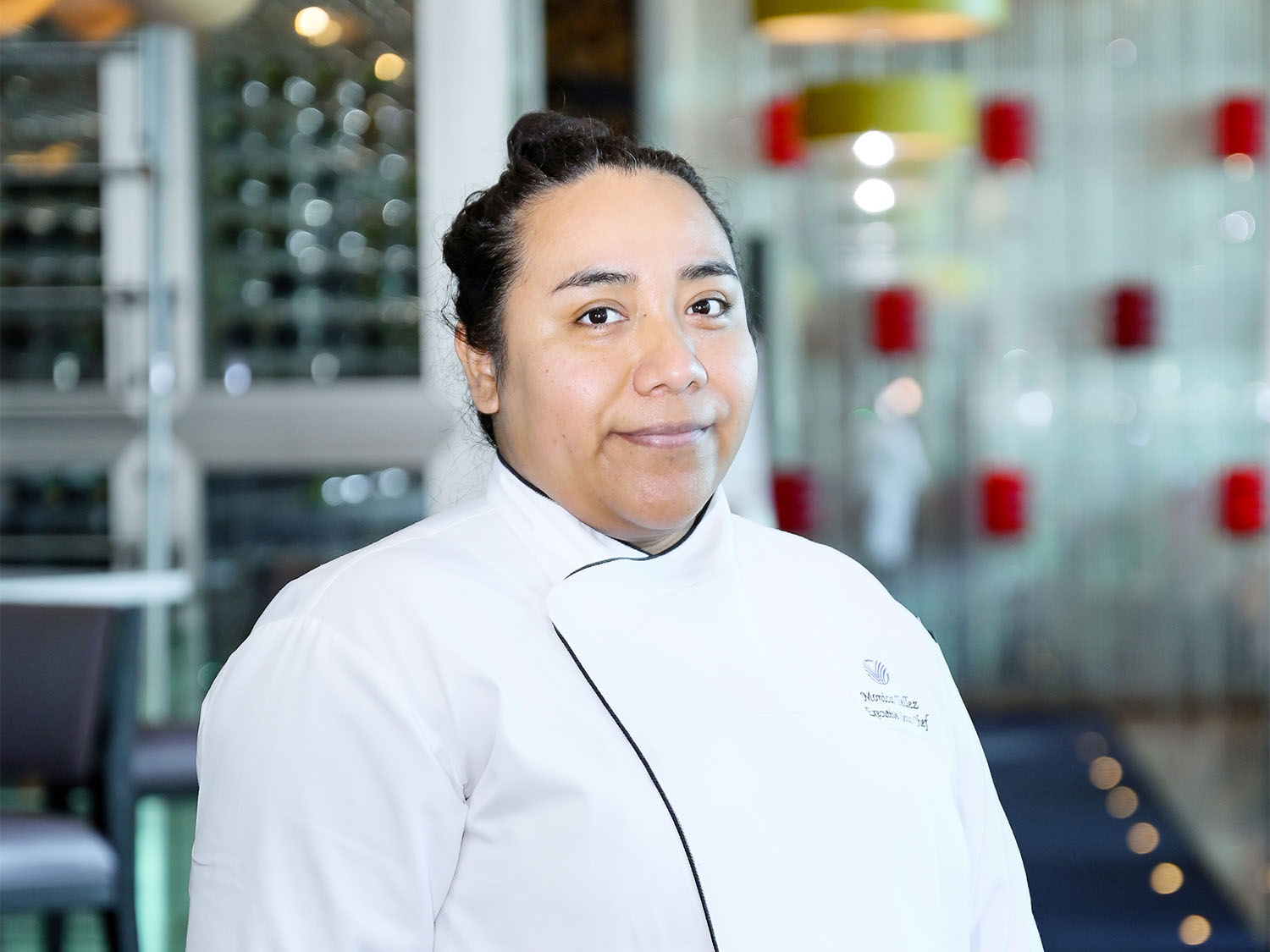





Comments are closed.